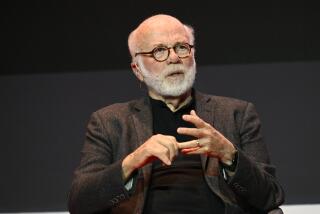Cheney book: McCain’s response to financial crisis was ‘risky’
- Share via
Sen. John McCain’s attempt to suspend his presidential campaign to deal with the financial crisis in the fall of 2008 stunned many in the White House and struck then-Vice President Dick Cheney as a sign that “the Republican presidential ticket was in trouble.”
It is among the criticisms Cheney levels against the former GOP presidential nominee in his new book, “In My Time: A Personal and Political Memoir.”
When McCain asked President George W. Bush to convene a meeting to discuss the financial crisis with the congressional leadership, the move “frankly surprised many of us in the White House,” Cheney wrote.
“After all, there really wasn’t much John could actually do, and it seemed pretty risky to ... head back to Washington without being clear about what you could actually deliver,” Cheney wrote. “But we wanted McCain to win, so when he asked the president to convene the congressional leadership -- the president did it.”
Cheney described the meeting as “likely unique in the annals of American presidential contests.”
McCain, despite having essentially called the meeting, took a pass the first time Bush turned to him to speak. The second time, “he spoke, but only for himself,” Cheney wrote.
“It was a marked contrast with [then-Sen. Barack] Obama, whose words carried the authority of all the Democrats in the room,” he wrote. “Senator McCain added nothing of substance. It was entirely unclear why he’d returned to Washington and why he wanted the congressional leadership called together.”
It was not the only time Cheney and McCain did not see eye to eye. The two clashed over McCain’s efforts to end the interrogation techniques, such as waterboarding, that Cheney had championed after the 9/11 terrorist attacks.
Cheney recalls meeting with McCain, “in an effort to reach an agreement -- and explain to him how damaging his proposed amendment would be.”
McCain, who spent more than five years imprisoned as a prisoner of war in Vietnam, has long opposed so-called enhanced interrogation techniques such as waterboarding, arguing that their use could give future enemies the moral cover to torture American troops.
“But John didn’t want to hear what we had to say.” Cheney wrote. “We had hardly started when he lost his temper and stormed out of the meeting.”
kim.geiger@latimes.com
More to Read
Get the L.A. Times Politics newsletter
Deeply reported insights into legislation, politics and policy from Sacramento, Washington and beyond. In your inbox twice per week.
You may occasionally receive promotional content from the Los Angeles Times.










